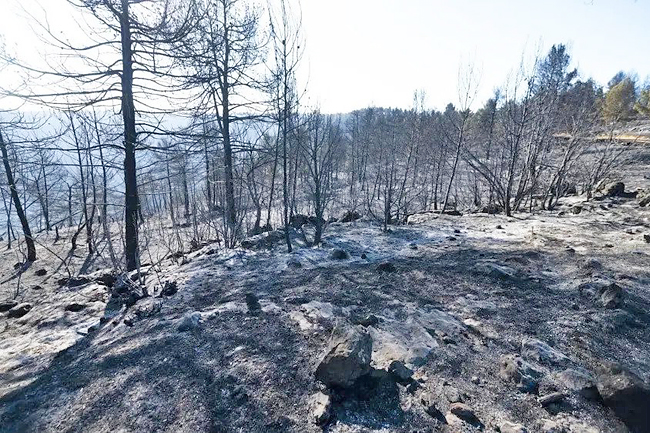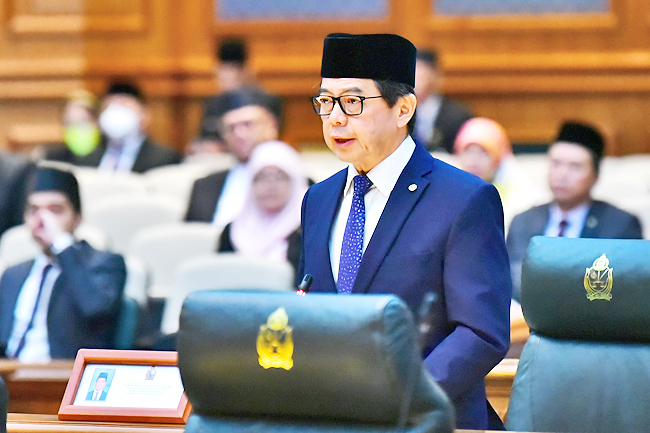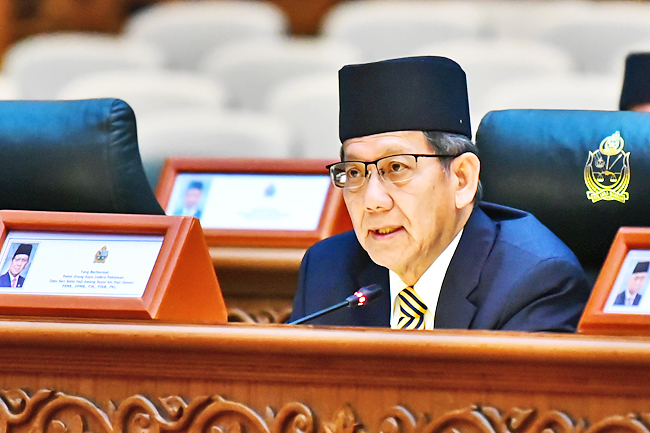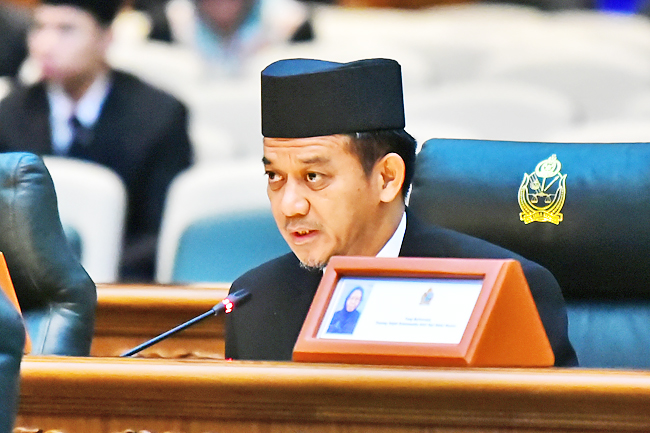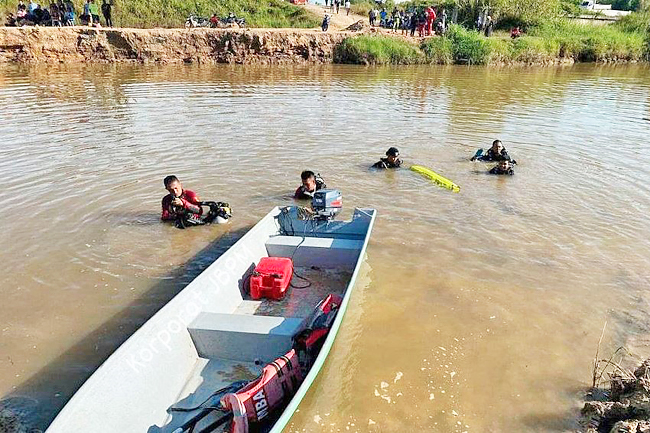Izah Azahari
Drawing attention to a concerning trend, Minister of Culture, Youth and Sports Yang Berhormat Dato Seri Setia Awang Haji Nazmi bin Haji Mohamad addressed the increasing prevalence of ‘rojak language’ or code mixing leaning heavily towards English rather than Malay language during a Legislative Council (LegCo) meeting on March 21.
The minister noted the phenomenon becoming more accepted and normalised, finding it to be a flaw and a lamentable development.
“It is particularly disheartening when initiatives are promoted using a foreign language rather than the Malay language itself,” said the minister, adding that to allow this trend to continue would be an admission that the Malay language has lost its prestige and significance.
He called for unity in efforts to uphold the Malay language as the official language of the country, and to restore its dignity and importance.
Earlier, LegCo member Yang Berhormat Abdul Aziz bin Haji Hamdan questioned as to what the Ministry of Culture, Youth and Sports’ (MCYS) plans were through the Language and Literature Bureau (DBP) in empowering the use of the Malay language at the national level.
As the Constitution of Brunei Darussalam 1959 designated Malay as the state’s official language, the minister shared that the MCYS has taken several initiatives to strengthen and promote the use of Malay language in the Sultanate, primarily through the DBP as a government agency entrusted with the responsibility of ensuring the continued dignity and importance of the Malay language, working tirelessly towards the goal.

Among these efforts, the minister explained, is instilling a positive attitude to preserve, empower and make the Malay language sovereign for all levels of society; celebrating the Language Month every July; making Malay a high-status language, the language of communication and the language of expressing knowledge; and cultivating love, respect and pride of the language.
Elaborating on the Language Month, the minister said it acts as a vehicle to refresh the importance of the Malay language, involving government, non-governmental organisations (NGOs) and private companies through a national approach that echoes and invigorates the celebration.
The DBP uses various platforms such as forums, seminars, congresses, festivals, workshops, competitions and contests as a field for the dissemination of knowledge in empowering the development of the Malay language in this country with over 6,500 participants for the financial year 2022-2023.
The minister also shared that the Malay language workshop in ministries, departments and the private sector is a DBP initiative as an effort towards refreshing the Malay language to use good and correct Malay in everyday communication, both written and spoken.
“Data has shown that over the last four years there has been an increase in the Roman Malay Language Spelling Workshop by 22 per cent from departments increasing to 11 departments per year with the participation of more than 1,800 people from ministries and government departments.”
Other efforts see the DBP fostering and instilling love for the Malay language among children and teenagers through programmes such as DBP ‘Dudun’ to educational institutions and districts in 25 schools in Brunei-Muara, Tutong and Temburong districts; the ‘Mari Bercerita’ contest with more than 300 participants either solo or in groups; early literacy that has seen 1,800 recipients since it was first introduced in 2014; the Young Writers programme that guided 199 participants; and increase publication, research and documentation materials.
The DBP has also published more than 1,400 books, dictionaries, journals and magazines to spread the Malay language, as well as mini or pocket-sized books that are easy to refer to and easy to carry around that include simple Malay that can be used by tourists, and the publication of books that use the dialects of the seven ethnic groups such as story books written entirely in the Dusun dialect and other dialects.
In 2011, a lexical register comprising the languages and dialects of the seven ethnic groups was published, and it remained highly sought after. Additionally, an initiative by the DBP to promote Brunei Malay, the ‘Kenali Negara Brunei’ segment is featured on Berita Perdana at 8pm. Brunei Malay is also broadcast through Pelita Brunei and Media Permata.
In addition, the minister shared DBP’s launch of an e-Dictionary project, providing users with online access to information on Bruneian Malay as a project that is part of the DBP’s efforts to preserve and disseminate the Malay language in digital form, with e-Dictionaries and Kalinga Bahasa serving as mediums for this purpose.
The bureau is also engaged in various research and documentation activities to strengthen the Malay language. These include research on the use of Malay language, Brunei Malay poems, traditional Bruneian children’s songs, and education on Kalimah Bahasa Tua, all of which contribute towards preserving and enriching the nation’s cultural heritage.
To promote the Malay language globally and ensure its accessibility to a wider audience, DBP collaborates with strategic partners abroad, including working with MABIMS and Southeast Asian Literature Council (Mastera) to further internationalisation of the language and spread its developments to the public.
The minister also voiced concern over the use of Jawi writing that is not being given adequate attention in official events organised by ministries, departments and the private sector, as Jawi writing is not seen to be affixed to stage backgrounds, banners, and posters announcing activities whether physically or virtually, stipulating that it is essential that government ministries and departments and the private sector pay attention to its use and ensure that it is appropriately incorporated into their official events and communications.
Ending his response, the minister shared that his reprimands are not directed to any particular party, but also includes reprimands and reminders to himself and the generations to come.

